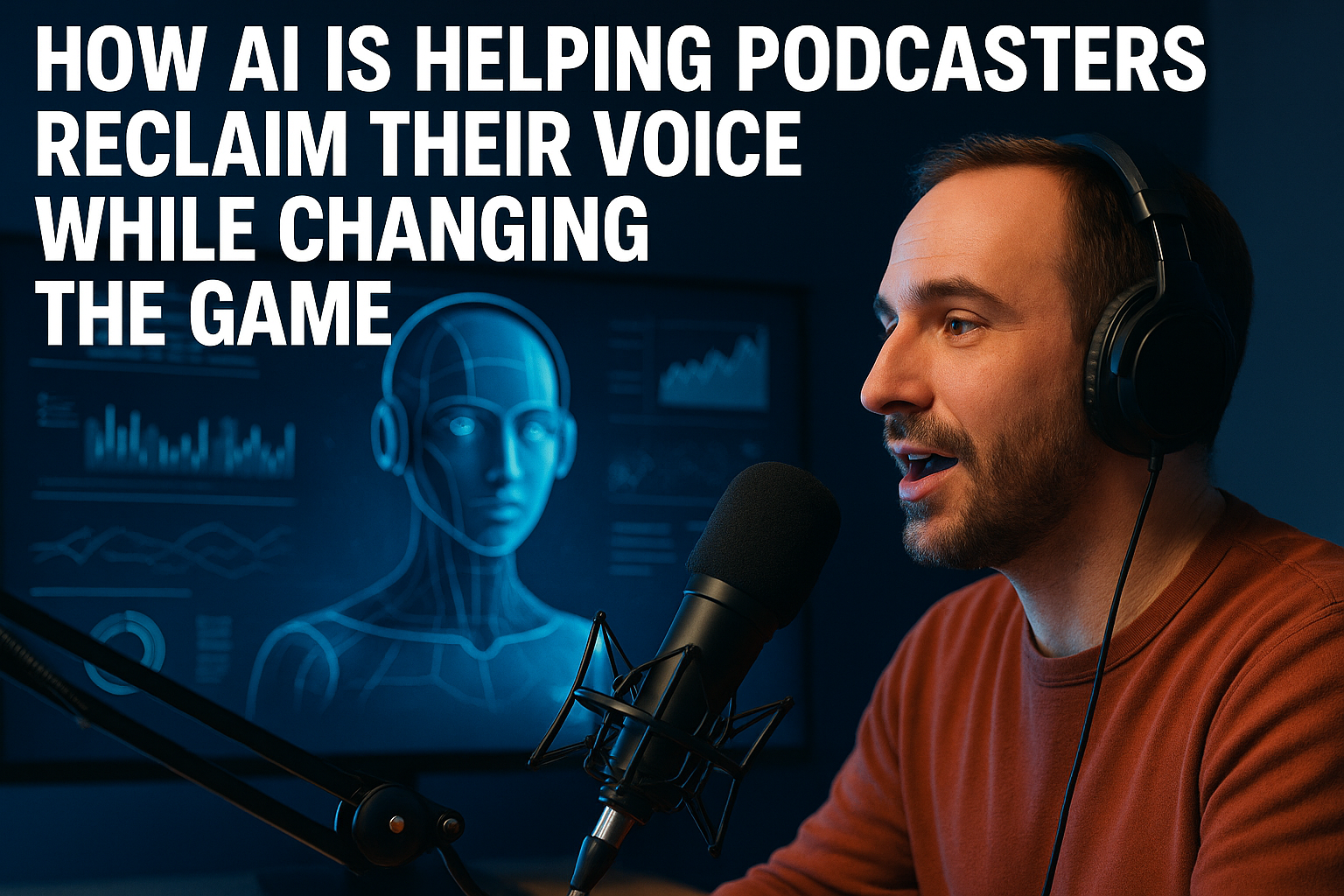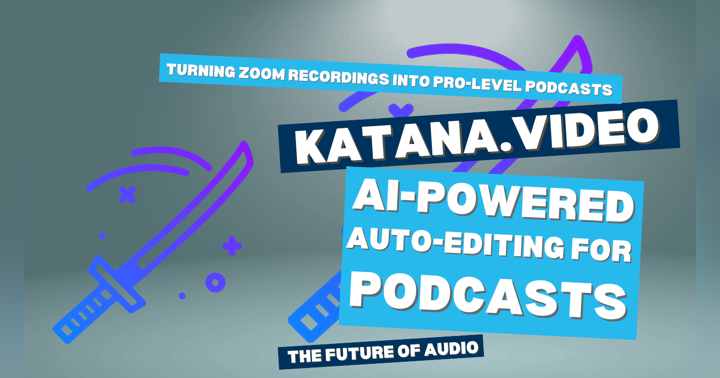How AI Is Helping Podcasters Reclaim Their Voice While Changing the Game

With podcasts growing increasingly popular, podcasters are struggling to keep up—especially given how tedious it is to produce a show every week. Some even run daily shows that run for hours, making the process even more demanding.
A complete podcast requires writing show notes, promotional copy, and managing social media tasks—time-consuming chores many podcasters loathe.
Enter Artificial Intelligence
On Episode 53 of the Podcasting Tech Show, host Mathew Passy sat down with Slobodan Manic (aka “Sunny”), co-founder of Podpacer and host of the No Hacks Podcast, for a deep dive into how AI tools are reshaping the day-to-day life of busy podcasters.
The role of AI in podcasting remains a hotly debated topic in the community, splitting opinions: some podcasters swear by it, others vehemently oppose it, and some prefer to wait and see how AI will ultimately impact the medium.
One thing is certain, though—AI’s influence is undeniable.
Promotion, Show Notes, and Beyond: Automating the Tedious
Slobodan Manic’s journey began in web development, but the 2021 podcasting boom—fueled by the pandemic—drew him into audio content. Like many new podcasters, he started as a way to build a professional network when in-person conferences weren’t an option.
One early challenge? Finding the right balance between scripting and improvising. Fully scripted episodes sounded stiff, while winging it risked sacrificing quality.
Necessity Is the Mother of Invention
A high-pressure project—17 interviews in 34 days for a conference, all while juggling a full-time job—pushed Slobodan to create a smart tool to handle the heavy lifting: researching guests, structuring outlines, and crafting relevant questions.
He turned to AI, building a prototype (now Podpacer) that could "feed in a guest’s bio, past interviews, articles, or LinkedIn posts" and generate a tailored interview outline with thoughtful, contextual questions. It also produces episode transcripts, blog posts, newsletter snippets, social captions, and—of course—show notes in the host’s own voice.
“Podpacer is basically an assistant for those who don’t have a research assistant… It empowers independent hosts to prepare like a team-backed studio, ensuring every guest feels respected and engaged,” Slobodan said during the show.
Will AI Take the Human’s Place in Podcasting?
With AI growing smarter by the day—and new updates further reducing the need for human touch—some podcasters genuinely worry if machines will soon render them obsolete. Entire shows with AI voices and fictional characters are now possible.
But Sunny remains adamant: AI is no threat to podcasters.
“I hate the idea of a podcast being fully AI-generated,” he told host Mathew.
Slobodan insists that Podpacer is designed to amplify human creativity, not replace it. He advises podcasters to embrace automation for repetitive tasks—like thank-you emails or transcription-based summaries—but always include a human review step.
“I don’t trust AI. I hope no one ever does,” Slobodan says, emphasizing the need for creative oversight.
AI Is Actually Giving Podcasters Back Their Voice
AI has proven how a single show can be reimagined, repurposed, and given a longer shelf life—preventing episodes from fading into obscurity after airing.
Across the creative industry, the human voice is becoming more valued than ever thanks to AI. YouTube is the latest platform to reinforce this, updating its YouTube Partner Program (YPP) Monetization policies on July 15 with stricter guidelines on monetizable content.
Now, creators must post original, human-made videos to stay in the program. Mass-produced, reused, or AI-generated content is now under scrutiny. Content creators using AI-generated videos, text-to-speech narration, or existing clips without modification could risk demonetization. The updated rules strives to curb the spread of channels that rely on volume rather than creativity or originality.
The Biggest Winners? Audiences.
With creators leveraging AI to handle repetitive tasks, they can focus on storytelling, engagement, and creativity—resulting in better shows, richer stories, and an overall superior listening experience.
Slobodan argues that the future of podcasting isn’t about AI taking the mic. Instead, it’s about letting technology handle the grunt work so hosts can do what they do best: craft compelling stories, foster meaningful conversations, and build genuine connections with their audience.
How ironic—by showcasing the limitless potential of human capability, AI has actually secured the human voice in podcasting and the creative space.

